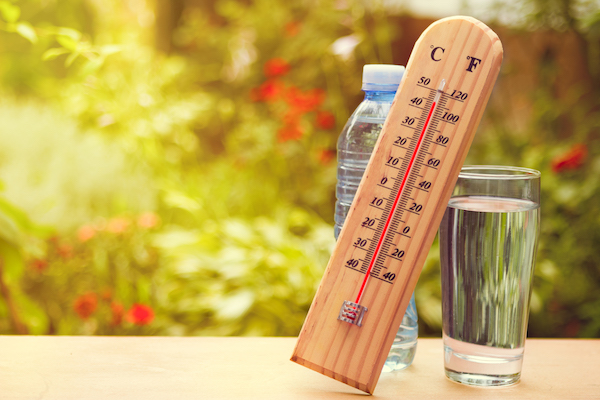Keeping The Elderly Safe In A Heat Wave

Summer will bring with it long; lazy days of sunshine and chances are heat emergencies will also arise as a result. As a general rule, the National Weather Service issues a heat advisory when the heat index meets a certain threshold. These are the days when checking on your loved one is ever more important!
Heat is as dangerous to the health of your elderly loved ones as is the cold in the winter. There are symptoms both you and your elderly loved ones should be aware of. These symptoms include:
- A throbbing headache
- Increased body temperature
- Skin that is extremely hot and dry to the touch
- Rapid pulse rate
- Dizziness and/or nausea or vomiting
The symptoms of heat stroke or heat exhaustion include:
- Weakness or lethargy
- Profuse sweating
- Pale, cold or clammy skin
- Weak pulse
- A body temperature of 106 degrees or more
- Unconsciousness
Heat stroke requires immediate medical attention. If your parents live alone and are in an area of the country where excessive heat could be an issue, equipping their home with a medical alert device can offer peace of mind for both of you should they begin feeling the effects of the heat. With the press of the medical alarm button, assistance is available.
The elderly doesn’t adjust well to either extreme cold or extreme heat. The medications that your aging parent may be on can also contribute to issues with heat toleration and these factors combined can put additional stress on their hearts.
There are steps you can take to “heat-proof” your aging relative’s home in the event there is a heat emergency or simply for those overly-warm summer days that will be upon us soon:
- Advise them to eat lighter, smaller meals
- Use a whole-house air conditioner if possible. If this isn’t possible equip at least one of the rooms with a window air conditioner so they can spend time in that one cooled room. If neither of those options are viable, the home should at least have fans running to help create a cross breeze.
- They should avoid alcohol and caffeine and drink at least two to four cups of water every hour
- Wear lightweight, loose fitting clothing
Relax and don’t exercise during the hottest parts of the day - If they need to go outside, make certain they carry a bottle of water with them and wear a hat and sunscreen
- Taking a cool shower or soaking in a tepid bath will also help alleviate the stress of the heat
Make certain no matter what your parents do, that they always have medical alert pendant on them. They may be unaware they’re suffering heat stroke until the symptoms overtake them.
- How Seniors Can Feel Empowered in a Digital World with Accessible Technology
- February Is American Heart Month
- Thriving as a New Caregiver: Self-Care Secrets Revealed
- Bridging the Gap: Supporting Seniors Without Nearby Family
- Distance Caregiving Simplified: Modern Strategies for Compassionate Support
FREE BROCHURE Today!
